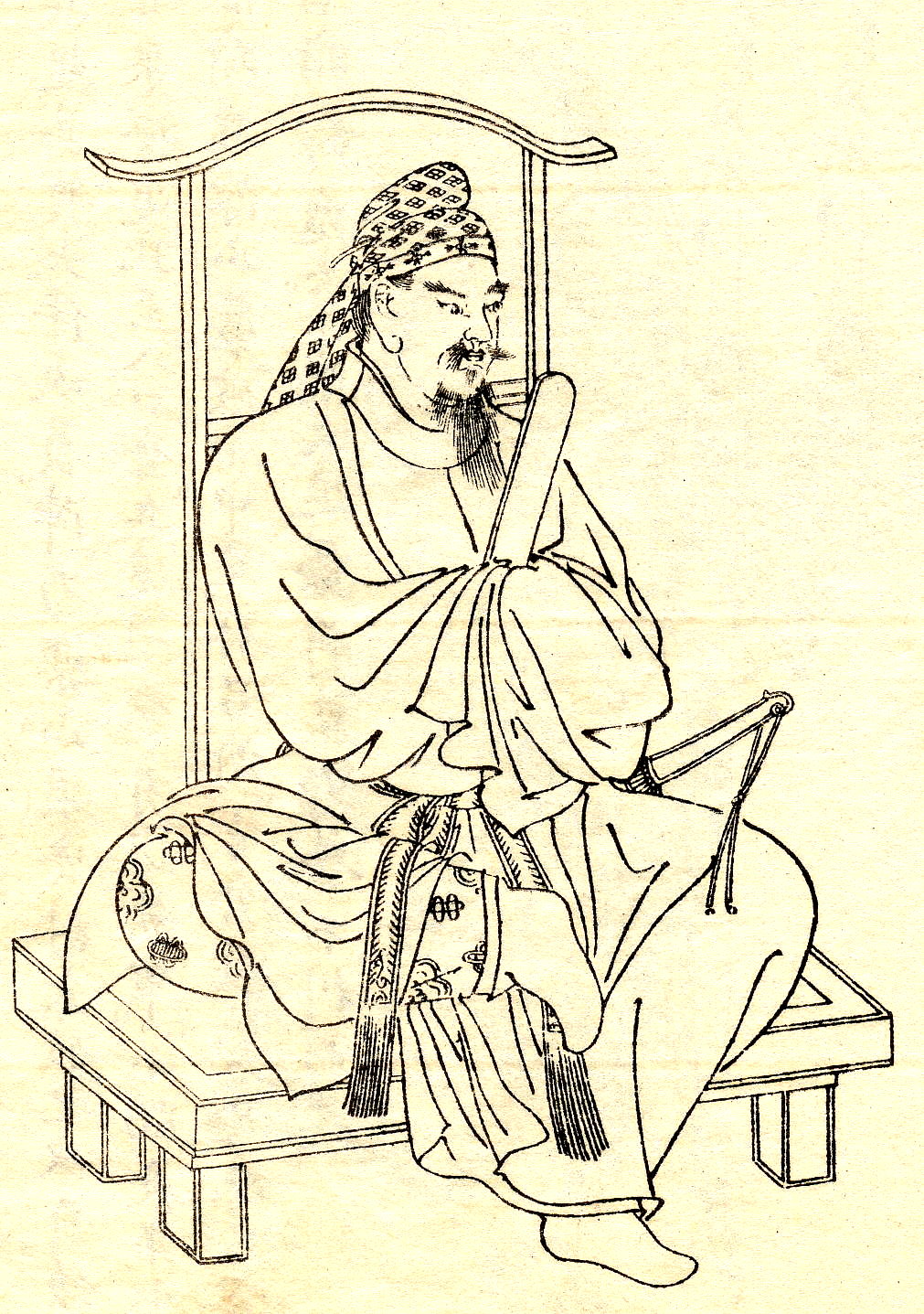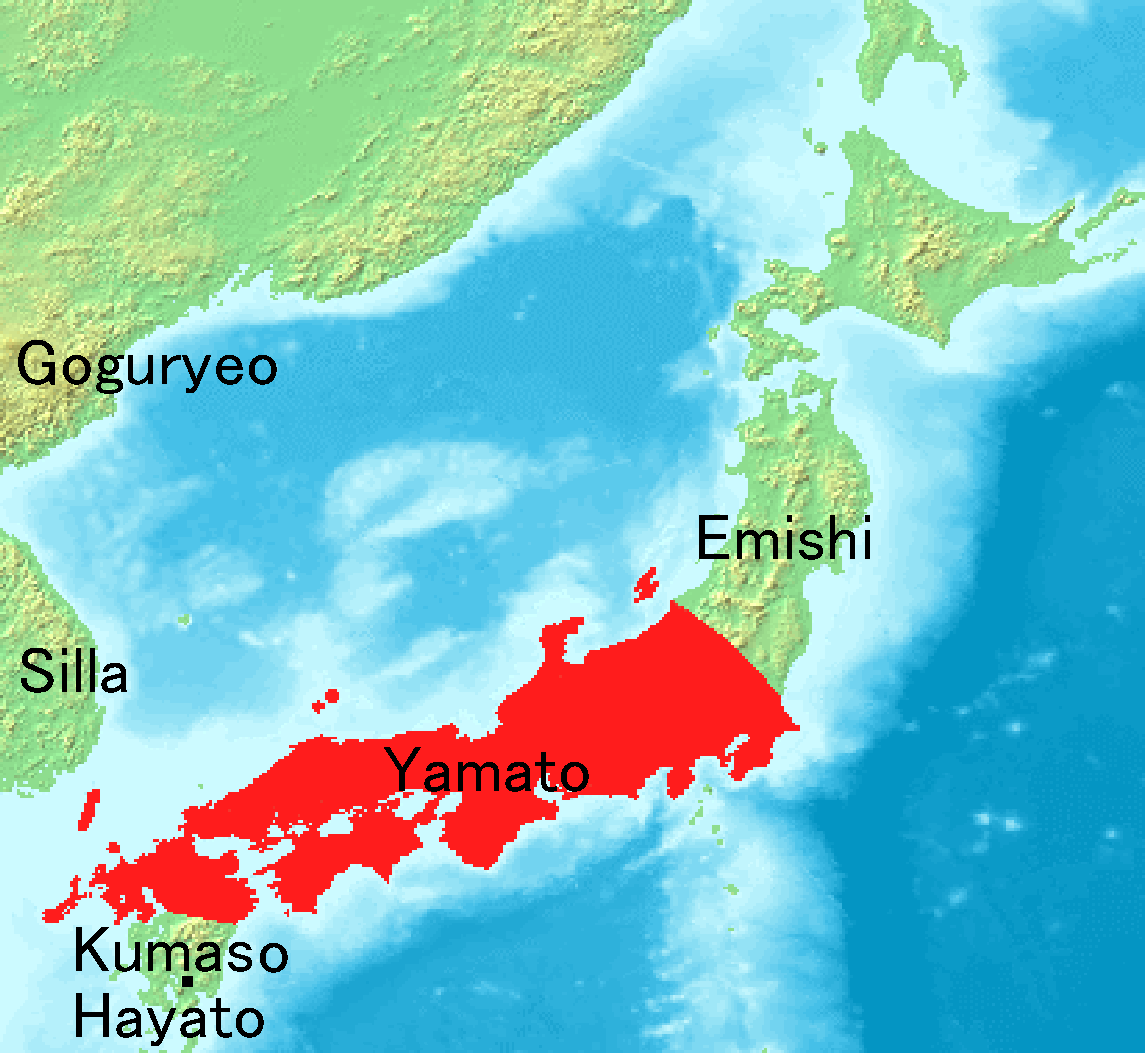|
Taika Reforms
The were a set of doctrines established by Emperor Kōtoku (孝徳天皇 ''Kōtoku tennō'') in the year 645. They were written shortly after the death of Prince Shōtoku and the defeat of the Soga clan (蘇我氏 ''Soga no uji''), uniting Japan. The reforms also artistically marked the end of the Asuka period and the beginning of the Hakuhō period. Crown Prince Naka no Ōe (the future Emperor Tenji), Nakatomi no Kamatari, and Emperor Kōtoku jointly embarked on the details of the Reforms. Emperor Kōtoku then announced the era of " Taika" (大化), or "Great Reform". The Reform began with land reform, based on Confucian ideas and philosophies from Tang China, but the true aim of the reforms was to bring about greater centralization and to enhance the power of the imperial court, which was also based on the governmental structure of China. Envoys and students were dispatched to China to learn seemingly everything from the Chinese writing system, literature, religion, and archite ... [...More Info...] [...Related Items...] OR: [Wikipedia] [Google] [Baidu] |
Emperor Kōtoku
was the 36th emperor of Japan,Imperial Household Agency (''Kunaichō'') 孝徳天皇 (33)/ref> according to the traditional order of succession. The years of his reign lasted from 645 through 654. Traditional narrative Before Kōtoku's ascension to the Chrysanthemum Throne, his personal name (''imina'') was or . He was a descendant of Emperor Bidatsu. He was a son of Chinu no ōkimi (Prince Chinu, 茅渟王) by Kibitsuhime no ōkimi (Princess Kibitsuhime, 吉備姫王). Empress Kōgyoku was his elder sister from the same parents. Chinu was a son of Prince Oshisaka hikohito no ōe, whose father was the Emperor Bidatsu. He had at least three consorts including his Empress, Hashihito no Himemiko (Princess Hashihito), the daughter of Emperor Jomei and his sister Empress Kōgyoku. In the 3rd year of Kōgyoku''-tennō''s reign (皇極天皇三年), the empress abdicated; and the succession (''senso'') was received by her younger brother. Shortly thereafter, Emperor Kōtoku is sai ... [...More Info...] [...Related Items...] OR: [Wikipedia] [Google] [Baidu] |
Naka No Ōe
Naka may refer to: Places in Japan * Naka, Hyōgo, a former town in Hyōgo Prefecture * Naka, Ibaraki, a city in Ibaraki Prefecture * Naka, Tokushima, a town in Tokushima Prefecture * Naka District, Ibaraki, a district in Ibaraki Prefecture * Naka District, Kanagawa, a district in Kanagawa Prefecture * Naka District, Shimane, a former district in Shimane Prefecture * Naka District, Tokushima, a district in Tokushima Prefecture People with the surname *, Japanese ice hockey player * Yuji Naka (born 1965), video game designer Others * Na+/K+-ATPase, membrane bound enzyme used to maintain an electrochemical gradient * "Naka", nickname of Japanese footballer Shunsuke Nakamura * Japanese cruiser ''Naka'' * Naka Benue Nigeria * Naka-Kon, a Kansas City, Missouri-based anime convention See also * Naka River (other), rivers in Japan * Naka-ku (other) Naka-ku (中区) is a common ward name in many Japanese cities. * Naka-ku, Hamamatsu, Shizuoka Prefecture * Naka-ku, ... [...More Info...] [...Related Items...] OR: [Wikipedia] [Google] [Baidu] |
Soga No Ishikawamaro
Soga may refer to: People * Soga clan, a Japanese clan of the Yamato period * Soga clan (Sagami Province), a Japanese clan * Soga people, of the Busoga kingdom in present-day Uganda * Machiko Soga, Japanese voice actress * Soga Tokimune, Japanese samurai * Soga Sukenari, Japanese samurai Places * Soga (river), a tributary of the Sogozha in Poshekhonye District, Yaroslavl Oblast, Russia * Soga, Tanzania, a railway station in Tanzania * Soga, an island in the Bissagos Islands off the coast of Guinea-Bissau * Soga Station, a railway station in Japan Other * Soga language, a Bantu language spoken in Uganda and the native language of the Soga people * Soga Monogatari, a Japanese tale of the Soga brothers * Sale of Goods Act (SOGA), legislation in the United Kingdom relating to the sale of goods * Soga, a percussion instrument See also * Busoga Busoga ( Lusoga: Obwakyabazinga bwa Busoga) is a kingdom and one of four constitutional monarchies in present-day Uganda. The kin ... [...More Info...] [...Related Items...] OR: [Wikipedia] [Google] [Baidu] |
Fujiwara No Kamatari
Fujiwara no Kamatari (藤原 鎌足, 614 – November 14, 669) was a Japanese statesman, courtier and aristocrat during the Asuka period (538–710).Nussbaum, Louis-Frédéric. (2005). "Fujiwara no Tadahira" in ; Brinkley, Frank ''et al.'' (1915). He is the founder of the Fujiwara clan, the most powerful aristocratic family in Japan during Nara and Heian periods. He, along with the Mononobe clan, was a supporter of Shinto and fought the introduction of Buddhism to Japan. The Soga clan, defenders of Buddhism in the Asuka period, defeated Kamatari and the Mononobe clan and Buddhism became the dominant religion of the imperial court. Kamatari, along with Prince Naka no Ōe, later Emperor Tenji (626–672), launched the Taika Reform of 645, which centralized and strengthened the central government. Just before his death he received the surname ''Fujiwara'' and the rank Taishōkan from Emperor Tenji, thus establishing the Fujiwara clan. Biography Kamatari was born to the Nakat ... [...More Info...] [...Related Items...] OR: [Wikipedia] [Google] [Baidu] |
Soga No Iruka
Soga may refer to: People * Soga clan, a Japanese clan of the Yamato period * Soga clan (Sagami Province), a Japanese clan * Soga people, of the Busoga kingdom in present-day Uganda * Machiko Soga, Japanese voice actress * Soga Tokimune, Japanese samurai * Soga Sukenari, Japanese samurai Places * Soga (river), a tributary of the Sogozha in Poshekhonye District, Yaroslavl Oblast, Russia * Soga, Tanzania, a railway station in Tanzania * Soga, an island in the Bissagos Islands off the coast of Guinea-Bissau * Soga Station, a railway station in Japan Other * Soga language, a Bantu language spoken in Uganda and the native language of the Soga people * Soga Monogatari, a Japanese tale of the Soga brothers * Sale of Goods Act (SOGA), legislation in the United Kingdom relating to the sale of goods * Soga, a percussion instrument A percussion instrument is a musical instrument that is sounded by being struck or scraped by a beater including attached or enclosed beaters or ... [...More Info...] [...Related Items...] OR: [Wikipedia] [Google] [Baidu] |
Empress Kōgyoku
, also known as , was the 35th and 37th monarch of Japan,Kunaichō 斉明天皇 (37)/ref> according to the traditional order of succession. Kōgyoku's reign spanned the years from 642 to 645. Her reign as Saimei encompassed 655 to 661. In other words, * 642: She ascended the throne as Kōgyoku''-tennō'', and she stepped down in response to the assassination of Soga no Iruka (see: Isshi incident). * 645: She abdicated in favor of her brother, who would become known as Emperor Kōtoku. * 654: Kōtoku died and the throne was vacant. * 655: She re-ascended, beginning a new reign as Saimei''-tennō''. * 661: Saimei ruled until her death caused the throne to be vacant again. The two reigns of this one woman spanned the years from 642 through 661. In the history of Japan, Kōgyoku/Saimei was the second of eight women to take on the role of empress regnant. The sole female monarch before Kōgyoku/Saimei was Suiko''-tennō''. The six female sovereigns reigning after Kōgyoku/Saimei ... [...More Info...] [...Related Items...] OR: [Wikipedia] [Google] [Baidu] |
Yamashiro Ōe
Yamashiro is a Japanese word with ''kanji'' often meaning ''mountain castle'' (山城). There are however other kanji spellings. * Yamashiro, Kyoto, former town in Japan * Yamashiro, Tokushima, former town in Japan * Yamashiro Province, former Japanese province * Japanese battleship ''Yamashiro'', a battleship of the Imperial Japanese Navy * Yamashiro Onsen, an onsen in Kaga, Ishikawa province * Yamashiro Park Taiyogaoka Stadium, an athletic stadium in Uji, Kyoto, Japan * Yamashiro Historic District, a villa, restaurant, and gardens in Los Angeles, California * Yamashiro, or yamajiro, category of Japanese castle in which the main structures are located on a mountain In addition to kanji variation, the word could also be read as ''Yamagusuku'' in the Ryukyu Islands. People Yamashiro is also a Japanese surname. In the Okinawan language, the kanji is read Yamagusuku. Notable people with the surname include: *Prince Yamashiro (d.643) * Danny Yamashiro (1967- ) * Hiroshi Yamashiro (1 ... [...More Info...] [...Related Items...] OR: [Wikipedia] [Google] [Baidu] |
Yamato Period
The is the period of Japanese history when the Imperial court ruled from modern-day Nara Prefecture, then known as Yamato Province. While conventionally assigned to the period 250–710, including both the Kofun period (–538) and the Asuka period (538–710), the actual start of Yamato rule is disputed. The Yamato court's supremacy was challenged during the Kofun period by other polities centered in various parts of Japan. What is certain is that Yamato clans had major advantages over their neighbouring clans in the 6th century. This period is divided by the relocation of the capital to Asuka, in modern Nara Prefecture. However, the Kofun period is an archaeological period while the Asuka period is a historical period. Therefore, many think of this as an old division and this concept of period division is no longer applicable. At the era of Prince Shōtoku in the early 7th century, a new constitution was prescribed for Japan based on the Chinese model. After the fall of B ... [...More Info...] [...Related Items...] OR: [Wikipedia] [Google] [Baidu] |
Shōtoku Tenchi (1711–1716), a Japanese era
{{disambiguation ...
Shōtoku may refer to: * Prince Shōtoku (574-622), a politician of the Asuka period * Empress Kōken, or Empress Shōtoku (718-770), the 48th imperial ruler of Japan * Shōtoku (era) was a after ''Hōei'' and before ''Kyōhō.'' This period spanned the years from April 1711 through June 1716.Nussbaum, Louis-Frédéric. (2005). "''Shōtoku''" ; n.b., Louis-Frédéric is pseudonym of Louis-Frédéric Nussbaum, ''see'Deutsche ... [...More Info...] [...Related Items...] OR: [Wikipedia] [Google] [Baidu] |


